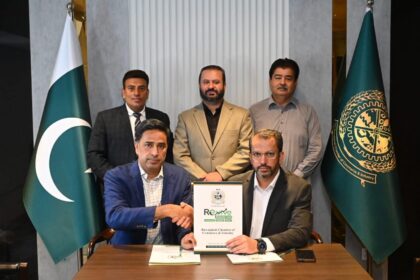Tensions over the Indus river system between India and Pakistan are escalating as a series of Indian hydroelectric and dam projects on rivers that flow into Pakistan fuel fears in Islamabad of reduced downstream flows, threats to agriculture and power generation, and a broader strategic leverage that could be used in times of conflict. Pakistan and some analysts describe this trend as a form of “water warfare,” while calls grow for stronger international oversight, legal recourse and domestic water management reforms to reduce vulnerability.
The Indus Waters Treaty, brokered with international mediation, divided the basin’s six rivers between the two countries and has long been cited as a rare example of cooperation despite political tensions. Under the treaty, India is permitted to build certain projects on the western rivers provided they meet design and operational restrictions intended to protect downstream flows. In recent years, however, a number of Indian projects have prompted formal objections from Pakistan and arbitration by neutral tribunals.
Projects cited most often in Pakistani complaints include those at Baglihar, Kishanganga and Ratle. Pakistan argues that some designs allow India to change the timing, quantity and management of river flows in ways that could harm agriculture, hydropower output and food security downstream. A binding arbitration decision mandated minimum downstream releases in one dispute, but Pakistan says subsequent projects and construction practices continue to raise concerns about effective flow control and storage.
Pakistan and several analysts warn that the problem goes beyond individual projects. As the upstream riparian, India holds control over headwaters that feed key Pakistani rivers, creating a strategic leverage that could be used to influence water availability. Remarks by some Indian officials in the past suggesting the possibility of withholding water during crises have intensified Pakistani fears that water could become a geopolitical instrument in future conflicts.
Climate change compounds the risk. Increasing variability in rainfall, shrinking glaciers and more frequent extreme weather events make river systems less predictable and heighten dependence on cooperative water management. Pakistan is already among the world’s most water-stressed countries, and disruptions or altered timing of river flows would disproportionately affect irrigated agriculture in its heartland.
The potential human and economic costs are substantial. The Indus basin underpins more than 90 percent of Pakistan’s irrigated agriculture, with the Chenab and Jhelum rivers particularly important to Punjab’s farming economy. Communities downstream in Sindh and Balochistan face long-term threats of desertification, saltwater intrusion and dwindling freshwater supplies that could trigger food insecurity and displacement.
Diplomatically and legally, Pakistan has taken its concerns to international forums and invoked treaty mechanisms, but progress has been uneven. The World Bank, as a treaty guarantor, and international arbitration panels have been involved at times, though Pakistan complains responses have often been slow or limited. India presents itself internationally as a responsible upper-riparian state and emphasizes its rights under the treaty, even as critics argue its actions amount to a subtle component of hybrid pressure between the two countries.
Analysts and Pakistani officials urge a multipronged response. Recommended steps include intensified diplomatic engagement multilaterally to reinforce treaty obligations, pursuing legal arbitration where treaty provisions are believed to be violated, and investing in domestic water storage, conservation and infrastructure to reduce dependence on upstream releases. Independent, scientific monitoring of dam operations and river flows is also urged to build an evidence base for international complaints, while public education campaigns could mobilize support for water-saving measures at home.
Water experts say the most sustainable path for the region lies in reinforced cooperation rather than coercion. While Pakistan pushes for stronger international enforcement and national resilience, many observers caution that long-term stability and food security in South Asia will depend on renewed, transparent and technocratic river management between the riparians rather than unilateral infrastructure programs that exacerbate mistrust.











